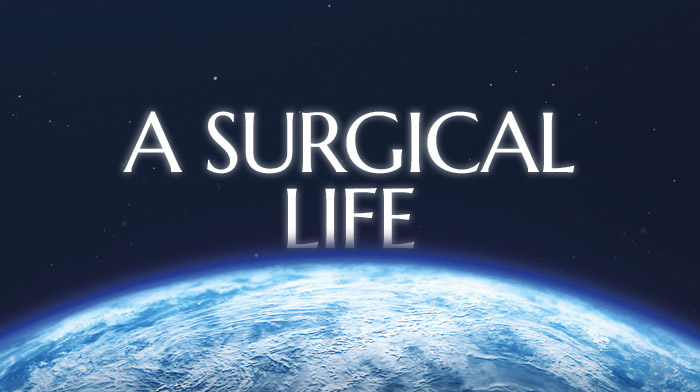BJS Academy>Surgical news>The other side...
(1)
The other side of the barrier
Dr Helgi Johannsson
Consultant Anaesthesia; Imperial College Healthcare
24 July 2025
Other side of the barrier General
(1)
Related articles

Who said nil-by-mouth?
Dr Helgi Johannsson
“Is the patient nil-by-mouth”?
A few months ago, I anaesthetised a patient for a routine operation. He was nervous, as many of them are, and had made the decision to forego his evening meal the night before surgery, and drink nothing after 6pm the previous day in order to be “extra safe” for his anaesthetic. When he told me, I responded with an outward smile and an inward eye-roll, popped out and came back with a glass of apple juice for him to drink, and a gentle explanation of how prolonged fasting is actually bad for his recovery.
Aspiration under anaesthesia is extremely rare in Europe, but it’s difficult to get accurate figures. Incidence for elective cases is around 1:5000 to 1:10,000. According to a UK Royal College of Anaesthetists audit, obstetrics is even lower with only 12 cases between 2013-2016, equating to around 5 cases per million pregnancies.

Are we risk aware or risk averse?
Dr Helgi Johannsson
Last year, I anaesthetised a woman for a diagnostic procedure. This is hardly a groundbreaking way to start an article about risk, but she had been highlighted to me because of her multiple co-morbidities. She had a surgical condition – an intra-abdominal cyst – that caused her constant pain every day, affecting her ability to walk, to eat and to perform even her basic activities, making her entirely reliant on her daughter. She had been turned down for surgery due to her other risk factors by the anaesthetic pre-assessment clinic and the multi-disciplinary team (MDT) looking after her, yet she continued to live with constant pain and distress. After a short discussion with her and her daughter, it became obvious that she did not want to spend the rest of her life in agony and would be very happy to take the additional risk of surgery for the benefit of not being in constant pain.
Every day, every hour we work in medicine we are assessing risk. Every decision to go ahead with surgery is a risk assessment and discussion with our patient. Usually the decision is straightforward, the patient has a surgical condition, an operation will relieve it and the risk of complications from the operation or the anaesthetic is low.

A surgical life by Agneta Montgomery
My surgical life What made you decide to become a surgeon? Art and design have always been a passion in life. I designed and sewed almost all my own clothes when growing up. When my twin brother was to get married, he wanted to wear a white dress suit. I tailored it for him as there was nowhere, we could find one. I have kept on tailoring abdominal walls.
Copied!
Connect

Copyright © 2026 River Valley Technologies Limited. All rights reserved.



.png)





.jpg)



